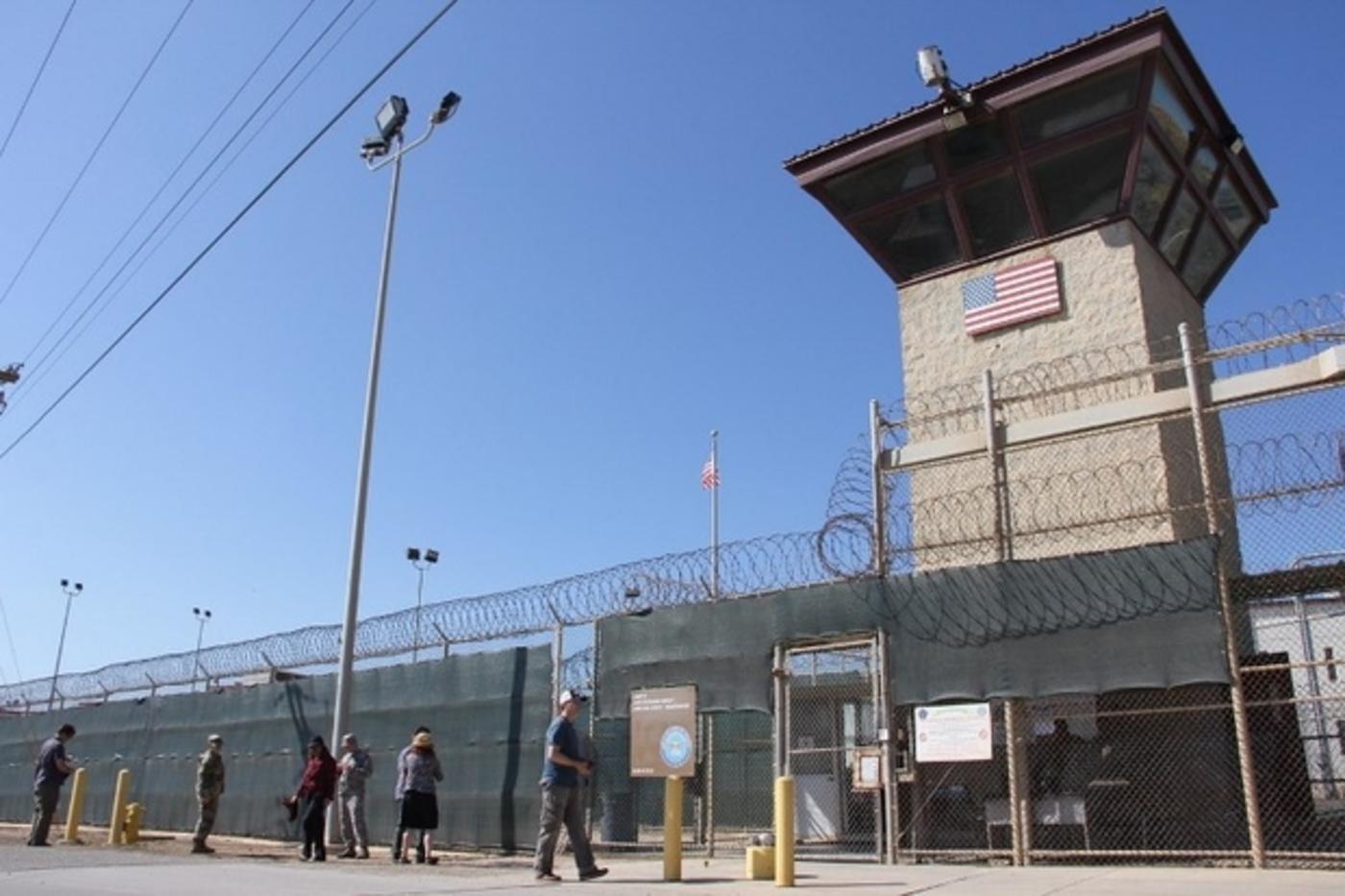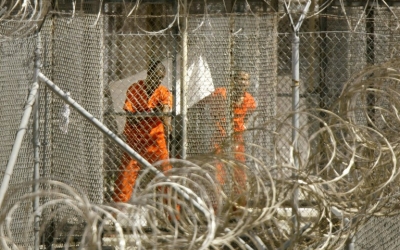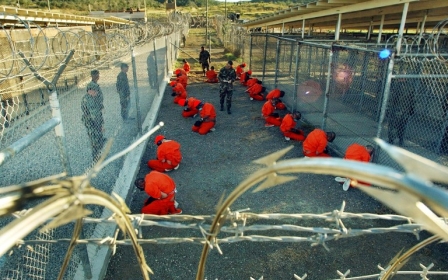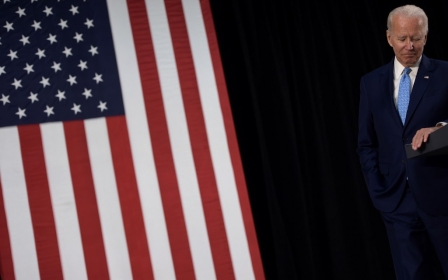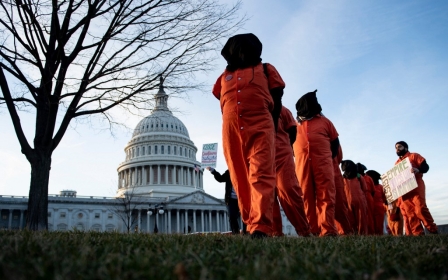Guantanamo Bay: A lingering symbol of US injustice
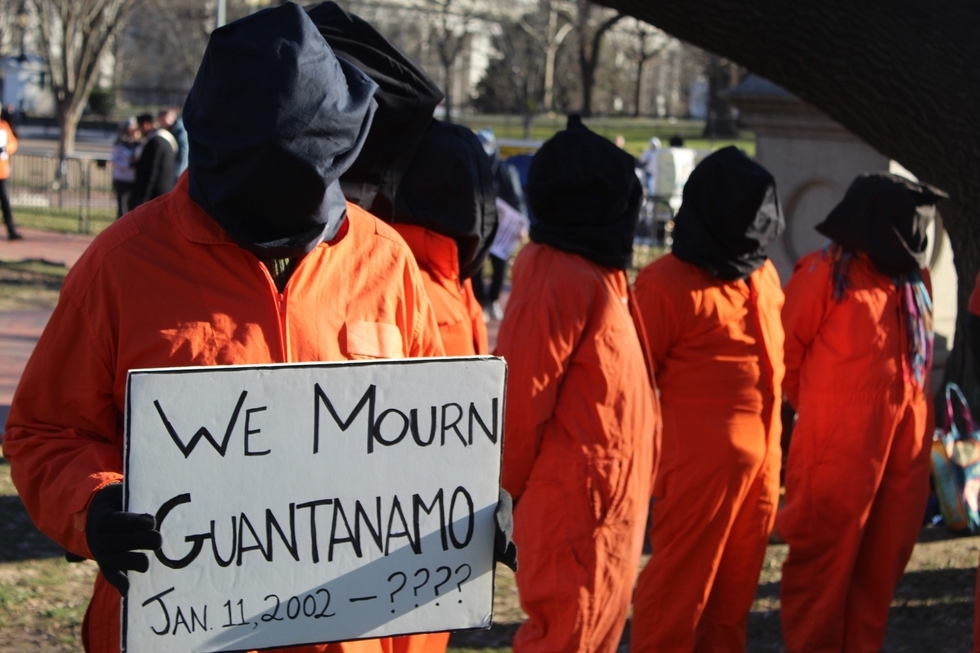
It has been 19 years since the Guantanamo Bay detention camp was established to hold prisoners of the "war on terror". Many of us recall the images of men in orange jumpsuits, shackled and goggled as they were “processed” into the cages of Camp X-Ray.
We learned that torture was rife, as testimonies trickled out of the prison’s walls. We were told that religious practices were mocked, detainees were made to listen to heavy metal music on loop, and sexual degradation was used as a way to “break” Muslim prisoners until they confessed to unfounded allegations.
We were shocked again when images circulated of these men being force-fed through a tube up their nose while chained to a chair. The only way to protest their unfair and illegal detention was through hunger strikes, but even that was used as a way to further punish and torture them. Over the years, however, we stopped being shocked by Guantanamo, as it slowly slipped from our minds.
These conditions make the prison inhospitable for human life, but that’s the thing about Guantanamo - prisoners are treated as anything but human
Based in southeastern Cuba, the detention camp is within an American naval station and became central to the US mission to detain and interrogate those they believed had any information on, or relationship to, al-Qaeda. At its peak, more than 750 Muslim men passed through Guantanamo, the youngest being 15. The oldest, Saifullah Paracha (now 73), remains incarcerated without charge.
In fact, plans are being made to create a hospice for aging detainees, and there is even an Islamic burial ground for those who cannot be repatriated and end up dying in the prison. While there have already been nine deaths at Guantanamo, the onsite burial ground remains empty. With the Trump administration recently awarding a multimillion-dollar contract for maintenance of the naval base until 2043, there is no sign of Guantanamo’s imminent closure.
Stay informed with MEE's newsletters
Sign up to get the latest alerts, insights and analysis, starting with Turkey Unpacked
Meanwhile, conditions in the detention camp are deteriorating. According to a New York Times article, after the recent bout of tropical rainfall in the area, “raw sewage sloshed inside the cells … Power flickered off and on. Toilets overflowed.” Such unsanitary conditions become even more alarming when we consider the potential impacts on containing the spread of a pandemic within the prison.
These conditions make the prison inhospitable for human life, but that’s the thing about Guantanamo - prisoners are treated as anything but human.
Legal complications
Some may ask how the detainees are allowed to be kept in such inadequate conditions. The answer lies in Guantanamo’s legal architecture. Guantanamo is legally complicated, a “lawless space” defined by the absence of justice. It has been remarked that iguanas have more rights at Guantanamo than the detainees because a $10,000 fine can be incurred if they’re run over.
Once you enter Guantanamo, there is no certainty as to when or if you will ever make it out. Those detained in the prison complex cannot access US federal courts, despite being held captive by the US administration. Instead, they are tried through military commissions, substandard “courts” in which most evidence against the detainees is obtained through torture. There is a stark contrast between the realities of the detainees and the sign that hangs outside the camp: “Honour Bound to Defend Freedom”.
As we move into 2021, what hope is there for the remaining detainees? Each change in administration in the US has brought with it a new agenda.
While Obama promised to close Guantanamo during his first term in office, Trump vowed to keep the prison open and “load it up with some bad dudes”. Although that didn’t happen, there are still 40 detainees stuck in legal limbo, some of whom have already been cleared for release.
The soon-to-be Biden administration will have to grapple with what to do with the prison, which currently costs the US $13m per prisoner to keep open. Prior to its use during the war on terror, Guantanamo was used as a detention centre to prevent Haitian asylum seekers from fleeing to the US. Under the pretence of public health, the US administration in the 1990s indefinitely detained Haitians fleeing violence in Guantanamo.
They were told that they might be detained at Guantanamo Bay until a cure for HIV was found. They had committed no crime, and yet these asylum seekers were detained without charge. The legal construction of Guantanamo Bay as a lawless space means that it can readily be used to isolate those on the very margins, considered a “risk” by the US.
Voices silenced
This article is a reminder of the continued injustices faced by those still detained in Guantanamo. Its continued existence indicates that the "war on terror" is ongoing, and that sadly, some voices and experiences will remain unheard and thus easily forgotten.
A vision of liberation and justice, particularly for those who have been traumatised in the prison facility, must also include calls to abolish any further form of detention on the site.
Guantanamo signalled the start of a spiralling war - now global in its reach - and set the precedent for imprisoning those deemed to be a threat to national security. In our quest to end the war on terror, however, we must not forget Guantanamo. It should cease to exist as a detention facility, both now and in the future.
The views expressed in this article belong to the author and do not necessarily reflect the editorial policy of Middle East Eye.
Middle East Eye delivers independent and unrivalled coverage and analysis of the Middle East, North Africa and beyond. To learn more about republishing this content and the associated fees, please fill out this form. More about MEE can be found here.



